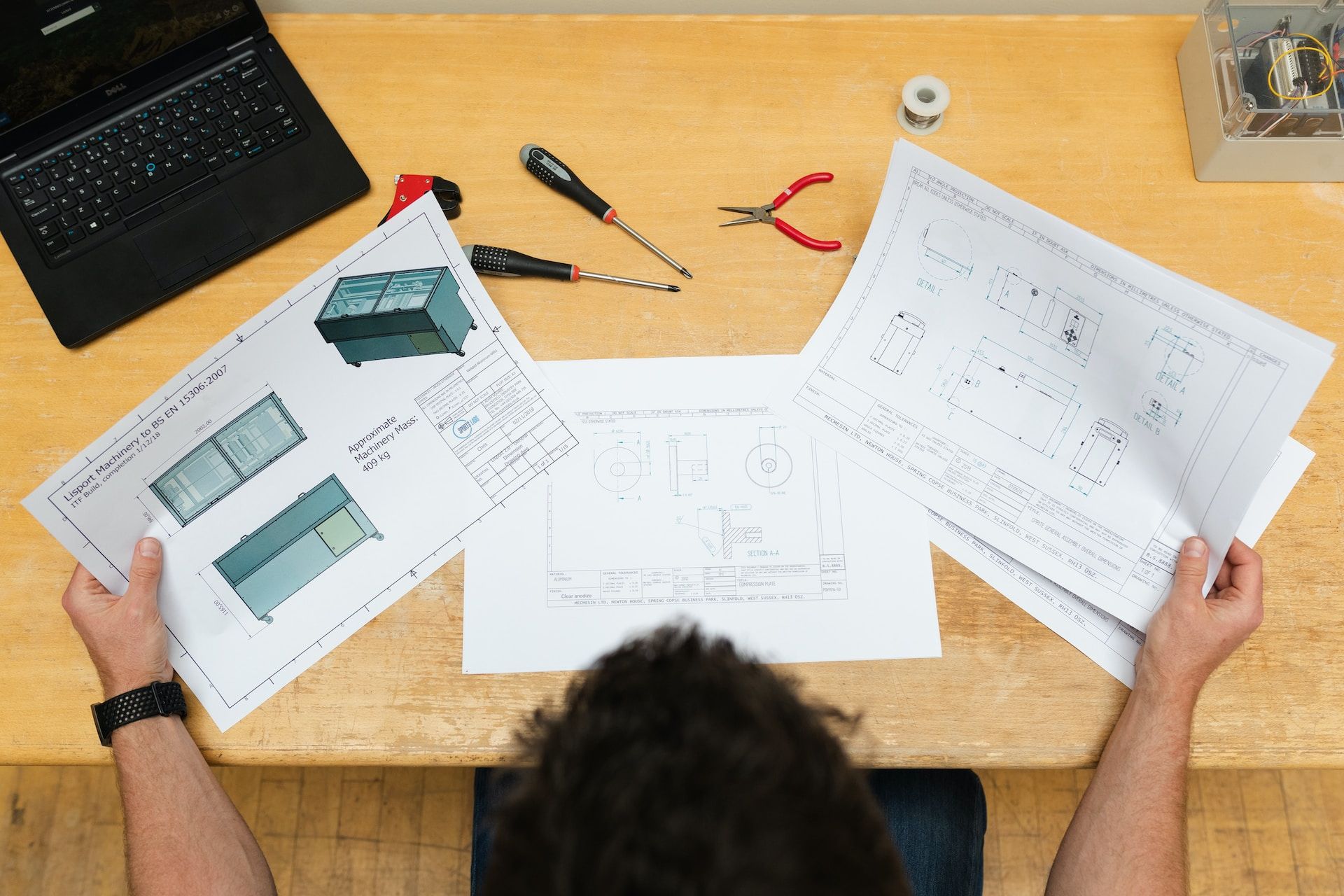According to a report by the Sustainable Furnishings Council, the use of certified sustainable materials in furniture manufacturing has increased by 200% since 2011. (Source: Sustainable Furnishings Council)
The global market for sustainable furniture is expected to grow at a compound annual growth rate of 7.6% between 2020 and 2027. (Source: ResearchAndMarkets.com)
A survey conducted by the National Retail Federation found that 70% of consumers consider sustainability when making purchasing decisions for furniture and home decor. (Source: National Retail Federation)

The Environmental Protection Agency estimates that over 9.7 million tons of furniture waste were generated in the United States in 2018, highlighting the need for better end-of-life management practices. (Source: Environmental Protection Agency)
According to the Ellen MacArthur Foundation, transitioning to a circular economy for the furniture industry could generate up to $450 billion in annual economic benefits globally by 2030. (Source: Ellen MacArthur Foundation)
As environmental concerns continue to rise, the furniture industry is increasingly focusing on sustainable manufacturing practices.
Sustainable furniture manufacturing refers to the production of furniture using materials, processes, and designs that have a minimal negative impact on the environment while also promoting social responsibility and economic viability.
It involves using renewable resources, reducing waste, minimizing carbon footprint, and implementing ethical labor practices. The push towards sustainable furniture manufacturing has become a major trend in the industry, as more consumers are prioritizing eco-friendly products and companies are recognizing the economic benefits of sustainable practices.
In this context, it is essential to understand the factors that contribute to the sustainability of furniture manufacturing and the efforts being made to improve it.
This article will be your complete guide to how sustainable furniture manufacturing is by covering the following topics:
- What is Sustainable Furniture Manufacturing?
- Key Aspects of Sustainable Furniture Manufacturing
- Why is Sustainable Furniture Manufacturing Important?
- How Sustainable is Furniture Manufacturing?
- Certifications for Ensuring the Sustainability of Furniture Manufacturing
- How to Measure the Sustainability of Furniture Manufacturing?
- How to Improve the Sustainability of Furniture Manufacturing?
- How can Consumers Promote Sustainable Furniture Manufacturing?
- Upcoming Trends Related to Sustainable Furniture Manufacturing
- How can Deskera Help You with Furniture Manufacturing?
- Key Takeaways
- Related Articles
What is Sustainable Furniture Manufacturing?
Sustainable furniture manufacturing refers to the process of creating furniture in an environmentally friendly and socially responsible way. This includes using materials that are renewable, recyclable, or biodegradable, as well as reducing waste and minimizing the carbon footprint of production.
Sustainable furniture manufacturing also involves ethical practices such as fair labor, safe working conditions, and supporting local communities. This includes sourcing materials from suppliers who uphold these values and ensuring that workers involved in the production process are treated fairly and paid a living wage.
To achieve sustainable furniture manufacturing, companies may use eco-friendly production techniques such as using renewable energy sources like solar or wind power, reducing water usage, and implementing efficient transportation and logistics. Additionally, companies may design their products with longevity and durability in mind, encouraging repair and reuse over disposal and replacement.
Overall, sustainable furniture manufacturing aims to create furniture that meets the needs of consumers while minimizing negative impacts on the environment and society.
Key Aspects of Sustainable Furniture Manufacturing
The key aspects of sustainable furniture manufacturing include the following:
- Use of sustainable materials: This involves sourcing materials that are renewable, recyclable, or biodegradable. Companies may also use recycled or reclaimed materials to reduce waste and promote circularity.
- Efficient production processes: Sustainable furniture manufacturers use production processes that minimize waste, reduce energy consumption, and lower carbon emissions. They may use renewable energy sources like solar or wind power and implement efficient transportation and logistics.
- Ethical and fair labor practices: Sustainable furniture manufacturers ensure that workers involved in the production process are treated fairly and paid a living wage. They may also provide safe working conditions and support local communities.
- Design for longevity and durability: Sustainable furniture is designed with longevity and durability in mind, encouraging repair and reuse over disposal and replacement. This promotes a circular economy where products are kept in use for as long as possible.
- Responsible disposal and recycling: Sustainable furniture manufacturers take responsibility for the end-of-life of their products, ensuring that they are disposed of or recycled responsibly. This may involve implementing take-back programs or working with recycling partners to ensure that products are properly recycled.
By incorporating these key aspects into their production processes, sustainable furniture manufacturers can create products that meet the needs of consumers while minimizing negative impacts on the environment and society.
Why is Sustainable Furniture Manufacturing Important?
Sustainable furniture manufacturing is important for several reasons:
- Environmental impact: Traditional furniture manufacturing methods can have a significant negative impact on the environment, including deforestation, air pollution, and greenhouse gas emissions. Sustainable furniture manufacturing helps to reduce these impacts by using eco-friendly materials and production processes.
- Resource conservation: Sustainable furniture manufacturing prioritizes the use of renewable and recyclable materials, reducing the demand for virgin resources and minimizing waste.
- Social responsibility: Sustainable furniture manufacturing involves ethical and fair labor practices, supporting local communities, and promoting worker safety and welfare.
- Health and safety: Sustainable furniture manufacturing reduces the use of toxic chemicals and other harmful substances, promoting health and safety for workers and consumers alike.
- Customer demand: Consumers are increasingly aware of the environmental and social impact of their purchasing decisions and are seeking out products that align with their values. Sustainable furniture manufacturing helps to meet this demand and build brand loyalty.
Overall, sustainable furniture manufacturing is important for promoting environmental and social responsibility, conserving resources, and meeting consumer demand for sustainable products.
It also helps to promote a more sustainable and circular economy, where products are designed to last, and waste is minimized.
How Sustainable is Furniture Manufacturing?
The sustainability of furniture manufacturing varies depending on the practices of individual manufacturers. While some companies prioritize sustainability and implement eco-friendly production processes, others may continue to rely on traditional manufacturing methods that have negative impacts on the environment and society.
However, there is a growing trend towards sustainable furniture manufacturing as consumers become increasingly aware of the environmental and social impact of their purchasing decisions. This has led to an increase in demand for sustainable furniture and a corresponding shift towards more sustainable production methods.
Many sustainable furniture manufacturers prioritize the use of eco-friendly materials such as reclaimed wood, recycled metals, and natural fibers. They may also use renewable energy sources like solar or wind power and implement efficient production processes that minimize waste and reduce energy consumption.
Sustainable furniture manufacturers also prioritize ethical and fair labor practices, ensuring that workers involved in the production process are treated fairly and paid a living wage. They may also provide safe working conditions and support local communities.
Overall, while there is still room for improvement, sustainable furniture manufacturing is becoming increasingly common as more companies prioritize sustainability and consumers demand more eco-friendly products.
There are several factors that determine how sustainable furniture manufacturing is, including:
Material Selection
Material selection is a crucial factor in determining how sustainable furniture manufacturing is. The materials used in furniture production can have a significant impact on sustainability, including environmental, social, and economic factors. Some key considerations for sustainable material selection in furniture manufacturing include:
- Renewable and recycled materials: Sustainable furniture manufacturers prioritize the use of materials that are renewable, such as FSC-certified wood, bamboo, or cork. They also use recycled materials, such as recycled plastic or metal, to minimize waste and conserve resources.
- Low-impact materials: Sustainable furniture manufacturers use materials that have a minimal impact on the environment, such as natural fibers, non-toxic paints and coatings, and water-based adhesives.
- Local sourcing: Sustainable furniture manufacturers source materials locally to minimize transportation emissions and support local economies.
- Circular materials: Sustainable furniture manufacturers use materials that are designed for circularity, such as modular furniture that can be easily disassembled and reused or recycled at the end of its life.
- Reduced packaging: Sustainable furniture manufacturers use minimal packaging and prioritize eco-friendly packaging materials to reduce waste.
By prioritizing sustainable material selection, furniture manufacturers can create products that have a minimal impact on the environment and society and support a more sustainable and circular economy.
Production Processes
Production processes are another important factor in determining how sustainable furniture manufacturing is. Sustainable furniture manufacturers prioritize the use of production processes that minimize waste, reduce energy consumption, and lower carbon emissions.
Some key considerations for sustainable production processes in furniture manufacturing include:
- Energy efficiency: Sustainable furniture manufacturers use energy-efficient technologies and practices to minimize energy consumption during production. They may use renewable energy sources like solar or wind power to reduce their carbon footprint.
- Waste reduction: Sustainable furniture manufacturers prioritize waste reduction, reuse, and recycling. They may implement closed-loop production processes that use waste materials as inputs for new products.
- Water conservation: Sustainable furniture manufacturers implement water conservation measures to minimize water consumption during production. They may use water-efficient technologies and practices, such as recycling and treating wastewater.
- Lean production: Sustainable furniture manufacturers use lean production practices to optimize production processes and minimize waste.
- Supply chain management: Sustainable furniture manufacturers work with suppliers that prioritize sustainability and ethical practices. They may also implement sustainable transportation and logistics practices to reduce carbon emissions.
By prioritizing sustainable production processes, furniture manufacturers can reduce their impact on the environment and society, conserve resources, and support a more sustainable and circular economy.
Packaging
Packaging is another important factor in determining how sustainable furniture manufacturing is. Sustainable furniture manufacturers use packaging that is eco-friendly, minimal, recyclable, or reusable.
Some key considerations for sustainable packaging in furniture manufacturing include:
- Minimal packaging: Sustainable furniture manufacturers prioritize minimal packaging to reduce waste and materials usage.
- Eco-friendly materials: Sustainable furniture manufacturers use eco-friendly packaging materials, such as biodegradable or compostable materials, to reduce their environmental impact.
- Recyclable or reusable packaging: Sustainable furniture manufacturers use packaging that is recyclable or reusable, reducing waste and promoting circularity.
- Efficient packaging design: Sustainable furniture manufacturers design packaging that is efficient, using minimal materials and space, and optimizing the use of transport and storage space.
- Sustainable transportation: Sustainable furniture manufacturers prioritize sustainable transportation and logistics practices, reducing carbon emissions and environmental impact.
By prioritizing sustainable packaging practices, furniture manufacturers can reduce their environmental impact, conserve resources, and support a more sustainable and circular economy.
Labor Practices
Labor practices are an important factor in determining how sustainable furniture manufacturing is. Sustainable furniture manufacturers prioritize ethical and fair labor practices, ensuring that workers involved in the production process are treated fairly and paid a living wage.
Some key considerations for sustainable labor practices in furniture manufacturing include:
- Fair labor standards: Sustainable furniture manufacturers adhere to fair labor standards and ensure that their workers are treated fairly and with respect.
- Living wages: Sustainable furniture manufacturers pay their workers a living wage that enables them to support themselves and their families.
- Safe working conditions: Sustainable furniture manufacturers prioritize safe working conditions, ensuring that their workers are not exposed to hazardous or harmful materials and are provided with protective equipment where necessary.
- Training and development: Sustainable furniture manufacturers provide training and development opportunities for their workers, empowering them to grow and develop their skills.
- Community engagement: Sustainable furniture manufacturers engage with local communities, supporting local development and investing in local initiatives.
By prioritizing sustainable labor practices, furniture manufacturers can create a positive impact on society, support fair labor standards, and contribute to local development.
End-of-Life Management
End-of-life management is another important factor in determining how sustainable furniture manufacturing is. Sustainable furniture manufacturers prioritize the end-of-life management of their products, ensuring that they are designed for circularity, recyclability, or reuse.
Some key considerations for sustainable end-of-life management in furniture manufacturing include:
- Circular design: Sustainable furniture manufacturers design products that are intended to be reused, recycled, or repurposed at the end of their life, using materials that can be easily disassembled and separated.
- Recycling and reuse: Sustainable furniture manufacturers prioritize recycling and reuse, using materials that are easily recyclable or reusable, such as metal, wood, or plastic.
- Product take-back programs: Sustainable furniture manufacturers may implement product take-back programs that enable customers to return their used products for recycling or repurposing.
- Extended producer responsibility: Sustainable furniture manufacturers take responsibility for the entire lifecycle of their products, including end-of-life management, ensuring that their products do not end up in landfills or harm the environment.
- Material recovery facilities: Sustainable furniture manufacturers may invest in material recovery facilities that can recover valuable materials from used products, supporting a circular economy.
By prioritizing sustainable end-of-life management practices, furniture manufacturers can reduce waste, conserve resources, and support a more sustainable and circular economy.
Certifications and Standards
Certifications and standards are other important factors in determining how sustainable furniture manufacturing is. There are several certifications and standards that furniture manufacturers can use to demonstrate their commitment to sustainability, such as:
- Forest Stewardship Council (FSC): The FSC certification ensures that wood and other forest products are sourced from responsibly managed forests that meet strict environmental and social standards.
- Cradle to Cradle (C2C): The C2C certification evaluates products based on their environmental impact, using a life cycle assessment approach to promote circularity and sustainability.
- Global Organic Textile Standard (GOTS): The GOTS certification ensures that textile products are made with organic fibers and that they meet strict environmental and social standards throughout the production process.
- Greenguard: The Greenguard certification ensures that products meet strict standards for low chemical emissions, promoting healthier indoor environments.
- Leadership in Energy and Environmental Design (LEED): The LEED certification evaluates buildings and products based on their environmental performance, promoting sustainability and efficiency.
By obtaining certifications and adhering to sustainability standards, furniture manufacturers can demonstrate their commitment to sustainability, improve their environmental and social performance, and provide customers with reassurance that their products are sustainable and eco-friendly.
Transparency and Accountability
Transparency and accountability are important factors in determining how sustainable furniture manufacturing is. Sustainable furniture manufacturers prioritize transparency and accountability, ensuring that their operations, practices, and impacts are openly communicated to stakeholders, including customers, employees, and communities.
Some key considerations for sustainable transparency and accountability in furniture manufacturing include:
- Sustainability reporting: Sustainable furniture manufacturers produce sustainability reports that detail their environmental and social performance, goals, and initiatives and make them publicly available.
- Supply chain transparency: Sustainable furniture manufacturers prioritize supply chain transparency, ensuring that their suppliers adhere to sustainability standards, and communicating their supplier practices to stakeholders.
- Third-party verification: Sustainable furniture manufacturers may seek third-party verification of their sustainability performance, ensuring that their practices and impacts are independently assessed and verified.
- Stakeholder engagement: Sustainable furniture manufacturers engage with stakeholders, including customers, employees, and communities, to gather feedback and input on their sustainability initiatives and improve their performance.
- Continuous improvement: Sustainable furniture manufacturers prioritize continuous improvement, regularly assessing their sustainability performance and setting goals for improvement.
By prioritizing transparency and accountability, furniture manufacturers can build trust with stakeholders, demonstrate their commitment to sustainability, and improve their environmental and social performance over time.
Consumer Education and Awareness
Consumer education and awareness are important factors in determining how sustainable furniture manufacturing is. Sustainable furniture manufacturers prioritize educating consumers about sustainability, helping them make informed choices that align with their values and priorities.
Some key considerations for sustainable consumer education and awareness in furniture manufacturing include:
- Eco-labeling: Sustainable furniture manufacturers may use eco-labeling to communicate the environmental and social impacts of their products, helping consumers make informed choices.
- Product information: Sustainable furniture manufacturers provide detailed product information, including material sourcing, production processes, and end-of-life management, to help consumers understand the sustainability of their products.
- Sustainability messaging: Sustainable furniture manufacturers prioritize sustainability messaging in their marketing and advertising, helping consumers understand the environmental and social benefits of their products.
- Sustainability education: Sustainable furniture manufacturers may provide sustainability education and resources, such as guides on sustainable living, to help consumers understand the broader impact of their consumption habits.
- Partnership and collaboration: Sustainable furniture manufacturers may partner with other organizations and stakeholders, such as environmental groups and sustainability advocates, to promote sustainability education and awareness.
By prioritizing consumer education and awareness, furniture manufacturers can empower consumers to make sustainable choices, raise awareness about sustainability issues, and promote broader adoption of sustainable practices.
Waste Reduction and Management
Waste reduction and management is an important factor in determining how sustainable furniture manufacturing is. Sustainable furniture manufacturers prioritize waste reduction and management, ensuring that their operations are as efficient and waste-free as possible.
Some key considerations for sustainable waste reduction and management in furniture manufacturing include:
- Design for disassembly: Sustainable furniture manufacturers prioritize design for disassembly, ensuring that their products can be easily disassembled and recycled at the end of their life.
- Waste reduction: Sustainable furniture manufacturers prioritize waste reduction, reducing the amount of waste generated in their operations and finding ways to repurpose or recycle waste.
- Material recycling: Sustainable furniture manufacturers prioritize material recycling, finding ways to reuse or recycle waste materials in their operations or supply chain.
- Waste-to-energy: Sustainable furniture manufacturers may use waste-to-energy systems, such as biomass or biogas systems, to convert waste into energy and reduce their carbon footprint.
- Closed-loop systems: Sustainable furniture manufacturers may implement closed-loop systems, such as circular supply chains or closed-loop manufacturing, to reduce waste and promote circularity.
By prioritizing waste reduction and management, furniture manufacturers can reduce their environmental impact, improve resource efficiency, and meet sustainability goals.
Additionally, sustainable waste reduction and management practices can also reduce costs and improve operational efficiency, making them an important consideration for furniture manufacturers.
Water Management
Water management is another important factor in determining how sustainable furniture manufacturing is. Sustainable furniture manufacturers prioritize responsible water management, ensuring that their operations use water efficiently and minimize their impact on water resources.
Some key considerations for sustainable water management in furniture manufacturing include:
- Water conservation: Sustainable furniture manufacturers prioritize water conservation, reducing their water usage and finding ways to reuse or recycle water.
- Efficient water use: Sustainable furniture manufacturers prioritize efficient water use, finding ways to minimize water usage in their operations through process improvements, technology upgrades, and other initiatives.
- Wastewater management: Sustainable furniture manufacturers prioritize responsible wastewater management, treating and disposing of wastewater in a way that minimizes environmental impact.
- Supply chain water management: Sustainable furniture manufacturers may work with suppliers to promote responsible water management throughout the supply chain, ensuring that water resources are used efficiently and responsibly.
- Water stewardship: Sustainable furniture manufacturers may participate in water stewardship initiatives, working with local communities and other stakeholders to promote responsible water management.
By prioritizing responsible water management, furniture manufacturers can reduce their environmental impact, improve operational efficiency, and promote sustainable practices throughout their operations and supply chain.
Additionally, responsible water management practices can also help companies build resilience to water-related risks and enhance their reputation as responsible corporate citizens.
Energy Efficiency and Carbon Footprint
Energy efficiency and carbon footprint are also key factors in determining how sustainable furniture manufacturing is. Sustainable furniture manufacturers prioritize energy efficiency and carbon reduction, ensuring that their operations are as energy-efficient as possible and that their carbon footprint is minimized.
Some key considerations for sustainable energy efficiency and carbon footprint reduction in furniture manufacturing include:
- Renewable energy: Sustainable furniture manufacturers prioritize renewable energy sources, such as solar or wind power, to reduce their reliance on fossil fuels and minimize their carbon footprint.
- Energy-efficient production processes: Sustainable furniture manufacturers prioritize energy-efficient production processes, optimizing manufacturing processes and equipment to minimize energy usage and waste.
- Efficient transportation: Sustainable furniture manufacturers prioritize efficient transportation, finding ways to minimize the carbon footprint of shipping and logistics, such as using low-emissions vehicles or optimizing transport routes.
- Energy-efficient buildings: Sustainable furniture manufacturers prioritize energy-efficient buildings, optimizing lighting, heating, and cooling systems to minimize energy usage and waste.
- Carbon offsetting: Sustainable furniture manufacturers may invest in carbon offsetting programs, such as reforestation or renewable energy projects, to offset the carbon emissions associated with their operations.
By prioritizing energy efficiency and carbon footprint reduction, furniture manufacturers can reduce their environmental impact, improve resource efficiency, and meet sustainability goals.
Additionally, sustainable energy practices can also reduce costs and improve operational efficiency, making them an important consideration for furniture manufacturers.
Certifications for Ensuring the Sustainability of Furniture Manufacturing
There are several certifications available that can help ensure the sustainability of furniture manufacturing. These certifications set standards for sustainable practices in furniture manufacturing, including environmental, social, and economic factors.
Here are some of the most widely recognized certifications:
- Forest Stewardship Council (FSC): The FSC certification ensures that wood products come from responsibly managed forests that meet strict environmental and social standards. This certification applies to both the sourcing and manufacturing of wood products used in furniture.
- Cradle to Cradle Certified: This certification evaluates products based on their environmental, social, and economic impact throughout their entire lifecycle. It evaluates materials, manufacturing processes, packaging, and end-of-life management.
- GREENGUARD Certification: This certification ensures that products have low chemical emissions, improving indoor air quality and promoting human health.
- Global Organic Textile Standard (GOTS): This certification ensures that textile products, such as upholstery, are made from organic fibers and meet strict environmental and social standards.
- Sustainable Furnishings Council (SFC) Certification: The SFC certification evaluates furniture manufacturers on their environmental and social impact, including material sourcing, manufacturing processes, and corporate social responsibility practices.
By obtaining these certifications, furniture manufacturers can demonstrate their commitment to sustainable practices and provide assurance to consumers that their products meet strict environmental and social standards.
These certifications also help to promote sustainable practices throughout the furniture industry and drive demand for sustainable products.
How to Measure the Sustainability of Furniture Manufacturing?
Measuring the sustainability of furniture manufacturing can be a complex process that involves evaluating a range of factors, including environmental, social, and economic impacts. Here are some key metrics and tools that can be used to measure the sustainability of furniture manufacturing:
- Life Cycle Assessment (LCA): LCA is a tool used to evaluate the environmental impact of a product throughout its entire lifecycle, from raw material extraction to end-of-life disposal. LCA can be used to assess the environmental impact of furniture manufacturing, including factors such as greenhouse gas emissions, energy use, and waste generation.
- Material Sourcing: Evaluating the sustainability of material sourcing is a key aspect of measuring the sustainability of furniture manufacturing. This can include factors such as whether materials are renewable or recycled and whether they come from sustainable sources.
- Energy Use: Measuring energy use and implementing strategies to reduce energy consumption is an important factor in ensuring the sustainability of furniture manufacturing. Metrics such as energy use per unit of production can be used to evaluate and track energy use over time.
- Waste Generation: Minimizing waste generation and implementing strategies to recycle or reuse waste is another important factor in measuring the sustainability of furniture manufacturing. Metrics such as waste per unit of production can be used to track waste generation over time.
- Water Use: Evaluating and minimizing water use is another important factor in ensuring the sustainability of furniture manufacturing. Metrics such as water use per unit of production can be used to evaluate and track water use over time.
- Social Impact: Measuring and evaluating the social impact of furniture manufacturing, including factors such as worker safety, fair labor practices, and community engagement, is also important for ensuring sustainability.
- Economic Impact: Evaluating the economic impact of furniture manufacturing, including factors such as job creation, supply chain sustainability, and financial performance, is another important factor in ensuring sustainability.
By evaluating and tracking these key metrics, furniture manufacturers can better understand their environmental, social, and economic impact and implement strategies to improve their sustainability over time.
How to Improve the Sustainability of Furniture Manufacturing?
Improving the sustainability of furniture manufacturing involves implementing practices that minimize the environmental impact of production while also promoting social and economic sustainability.
Here are some strategies that can be used to improve the sustainability of furniture manufacturing:
- Material Selection: Using sustainable materials such as recycled or renewable resources can reduce the environmental impact of furniture production. It is important to consider the entire lifecycle of materials, including their extraction, production, use, and disposal.
- Energy Efficiency: Implementing energy-efficient practices such as using renewable energy sources, improving insulation, and upgrading equipment can reduce energy use and associated greenhouse gas emissions.
- Waste Reduction: Minimizing waste generation through practices such as recycling, reusing, and repurposing materials can reduce the environmental impact of furniture manufacturing.
- Water Conservation: Implementing practices to conserve water, such as reducing water use during production and implementing water recycling systems, can reduce the environmental impact of furniture manufacturing.
- Social Responsibility: Ensuring fair labor practices, promoting worker safety, and engaging with local communities can promote social sustainability and ethical production.
- End-of-Life Management: Developing plans for end-of-life management, such as recycling or repurposing materials, can reduce the environmental impact of furniture manufacturing and promote a circular economy.
- Certifications: Obtaining certifications such as FSC, Cradle to Cradle, or GREENGUARD can demonstrate a commitment to sustainable practices and provide assurance to consumers that products meet strict environmental and social standards.
By implementing these strategies, furniture manufacturers can reduce their environmental impact, promote social and economic sustainability, and meet the growing demand for sustainable products.
How can Consumers Promote Sustainable Furniture Manufacturing?
Consumers can play an important role in promoting sustainable furniture manufacturing by making informed choices and supporting companies that prioritize sustainability. Here are some ways consumers can promote sustainable furniture manufacturing:
- Research: Before making a purchase, consumers can research the environmental and social impact of the companies they are considering. This can involve looking at the materials used, production processes, and certifications.
- Choose Sustainable Materials: Consumers can choose furniture made from sustainable materials, such as FSC-certified wood, recycled materials, or materials with low carbon footprints.
- Buy Locally: Purchasing furniture from local companies can reduce the environmental impact of transportation and support local businesses.
- Support Sustainable Brands: Supporting companies that prioritize sustainability, such as those with certifications like FSC, can encourage more companies to adopt sustainable practices.
- Repair and Refurbish: Repairing and refurbishing furniture can extend its lifespan and reduce the need for new purchases.
- Recycle or Donate: When furniture is no longer needed, consumers can recycle or donate it to keep it out of landfills and promote a circular economy.
- Spread the Word: Consumers can share information about sustainable furniture manufacturing with friends and family to raise awareness and encourage others to make sustainable choices.
By making informed choices and supporting sustainable practices, consumers can help promote a more sustainable future for the furniture industry.
Upcoming Trends Related to Sustainable Furniture Manufacturing
Here are some upcoming trends related to sustainable furniture manufacturing:
- Circular Design: Designing furniture with the aim of creating a circular economy is becoming more popular. This involves considering the entire lifecycle of a product, including materials, production processes, end-of-life management, and circularity, to reduce waste and promote sustainability.
- Eco-Friendly Materials: Furniture manufacturers are exploring new and innovative eco-friendly materials, such as biodegradable plastics, bamboo, and hemp, to reduce the environmental impact of production.
- Local Sourcing: Sourcing materials and production locally can reduce transportation emissions and support local economies, which is becoming more popular as consumers prioritize sustainability.
- Carbon-Neutral Production: Achieving carbon-neutral production through the use of renewable energy, improved energy efficiency, and carbon offsets is becoming increasingly important for sustainable furniture manufacturing.
- Upcycling and Reclaimed Materials: Using upcycled and reclaimed materials, such as salvaged wood and repurposed fabrics, can give the furniture a unique look while also reducing waste and promoting sustainability.
- Sustainable Certifications: Sustainable certifications, such as FSC and GREENGUARD, are becoming more popular as consumers seek assurance that the products they purchase are sustainable and environmentally friendly.
- Design for Disassembly: Designing furniture with the ability to be disassembled and easily repaired or recycled at the end of its life can promote sustainability and reduce waste.
These trends reflect a growing demand for sustainable furniture manufacturing practices and products and suggest that companies that prioritize sustainability will be more successful in the future.
How can Deskera Help You with Furniture Manufacturing?
Deskera is a cloud-based software solution that offers a range of features to help streamline and optimize the furniture manufacturing process. Here are some ways Deskera MRP can help you with furniture manufacturing:
- Inventory management: Deskera can help you manage your inventory levels and track the movement of raw materials and finished goods in real time.
- Production planning: With Deskera, you can plan and schedule your production process, track progress, and monitor resource utilization to ensure efficient production.
- Quality control: Deskera offers tools to help you manage quality control throughout the manufacturing process, from design to finishing, to ensure that your products meet the required standards.
- Sales and distribution: Deskera can help you manage your sales orders, track customer orders, and manage your distribution channels, allowing you to manage your sales process more efficiently.
- Financial management: With Deskera, you can manage your financial transactions, track expenses, and generate financial reports, giving you greater visibility into your financial performance.
- Business intelligence: Deskera provides advanced analytics and reporting capabilities, allowing you to gain insights into your business performance and make data-driven decisions.
Key Takeaways
In conclusion, sustainable furniture manufacturing is becoming increasingly important as consumers and companies prioritize environmental responsibility and economic viability. The factors determining the sustainability of furniture manufacturing are:
- Material selection: The materials used in furniture production can have a significant impact on sustainability. Sustainable furniture manufacturers prioritize the use of eco-friendly materials such as FSC-certified wood, recycled metals, and natural fibers.
- Production processes: Sustainable furniture manufacturers use production processes that minimize waste, reduce energy consumption, and lower carbon emissions. They may use renewable energy sources like solar or wind power and implement efficient transportation and logistics.
- Packaging: Sustainable furniture manufacturers use eco-friendly packaging materials and design packaging that is minimal, recyclable, or reusable.
- Labor practices: Sustainable furniture manufacturers prioritize ethical and fair labor practices, ensuring that workers involved in the production process are treated fairly and paid a living wage. They may also provide safe working conditions and support local communities.
- End-of-life management: Sustainable furniture manufacturers take responsibility for the end-of-life of their products, ensuring that they are disposed of or recycled responsibly. This may involve implementing take-back programs or working with recycling partners to ensure that products are properly recycled.
- Certifications and standards: Sustainable furniture manufacturers may obtain certifications such as FSC, LEED, or GreenGuard to demonstrate their commitment to sustainability.
- Transparency and accountability: Sustainable furniture manufacturers are transparent about their production processes and materials and are willing to be held accountable for their impact on the environment and society.
- Consumer education and awareness: Sustainable furniture manufacturers prioritize educating consumers about the environmental and social impact of their products and encouraging them to make sustainable purchasing decisions.
- Waste reduction and management: Sustainable furniture manufacturers prioritize waste reduction and management, ensuring that their operations are as efficient and waste-free as possible.
- Water management: Sustainable furniture manufacturers prioritize responsible water management, ensuring that their operations use water efficiently and minimize their impact on water resources.
- Energy efficiency and carbon footprint: Sustainable furniture manufacturers prioritize energy efficiency and carbon reduction, ensuring that their operations are as energy-efficient as possible and that their carbon footprint is minimized.
Each of these factors plays a critical role in determining the sustainability of furniture manufacturing, and sustainable furniture manufacturers prioritize each of them in their operations and practices.
By prioritizing sustainability across these ten factors, furniture manufacturers can reduce their environmental impact, improve social and environmental performance, and meet the growing demand for sustainable products.
Lastly, by using Deskera's comprehensive suite of software tools, furniture manufacturers can streamline their operations, improve efficiency, and reduce costs, resulting in better business performance and increased customer satisfaction.
Related Articles












